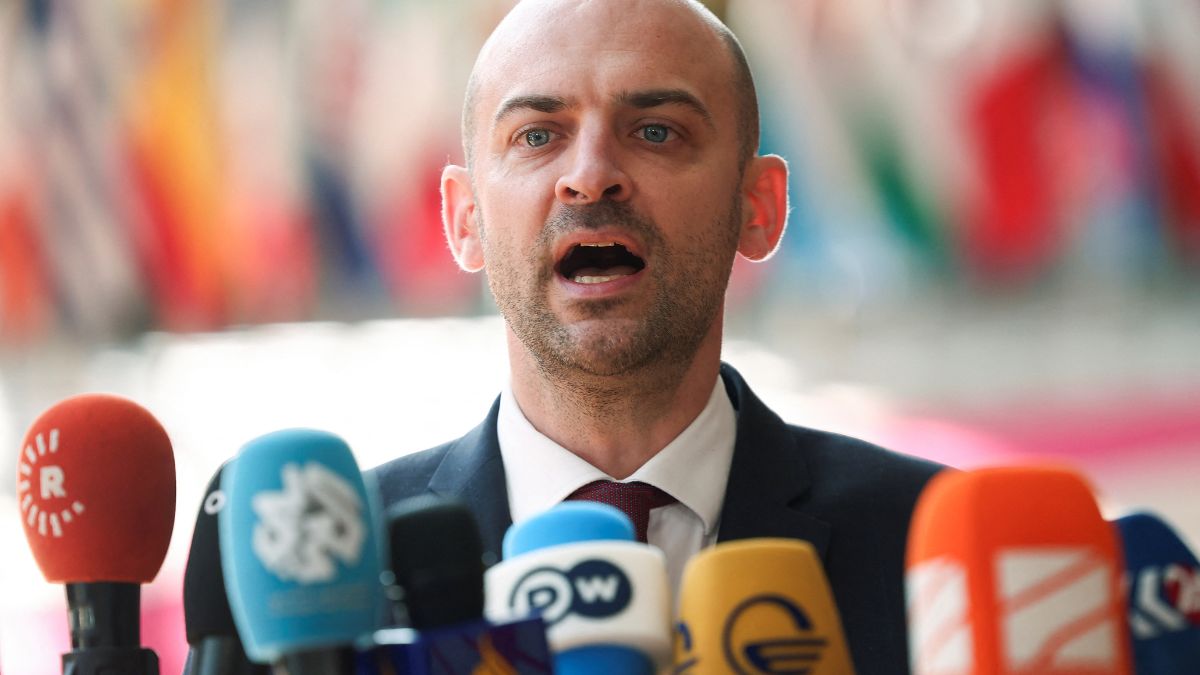US and Europe to give Iran until end of August to reach nuclear deal
 French Foreign Minister Jean-Noel Barrot speaks to the media on the day he attends the European Union Foreign Ministers council in Brussels | Reuters
French Foreign Minister Jean-Noel Barrot speaks to the media on the day he attends the European Union Foreign Ministers council in Brussels | Reuters
The US and its European allies have set a deadline for Iran to rein in its nuclear programme, warning of "snapback" sanctions if no agreement is reached by the end of August. The EU announced that the process to reinstate UN sanctions on Iran will commence on August 29 if Tehran shows no significant progress.
French Foreign Minister Jean-Noël Barrot said France and its partners were "justified in reapplying global embargoes on arms, banks and nuclear equipment that were lifted 10 years ago". He stressed that without a "firm, tangible and verifiable commitment from Iran," these measures will be implemented by the end of August. This move is seen as Europe's attempt to reassert its influence on the Iranian nuclear issue, particularly after US President Donald Trump's actions, including recent airstrikes on Iranian nuclear sites.
However, the US is unlikely to cede the lead in the process. On July 14, US Secretary of State Marco Rubio, along with the foreign ministers of France, Germany and the UK, agreed to the end of August as the de facto deadline. If Iran fails to meet this, the three European powers intend to trigger the "snapback" mechanism, automatically reimposing all UN Security Council sanctions lifted under the 2015 Iran nuclear deal. The West is keen to implement these measures before Russia, a key Iranian ally, assumes the UN Security Council presidency in October. Israeli Prime Minister Benjamin Netanyahu has urged Donald Trump not to block these snapback measures.
The August deadline initiates a process that could lead to a full suite of sanctions being reimposed by October 15. This provides the European signatories—the UK, France and Germany—with leverage in negotiations. A key objective for them is the return of UN nuclear inspectors to Iran to prevent the reconfiguration of its nuclear programme following the US strikes in June.
The 2015 deal's structure prevents other signatories like China or Russia from vetoing the snapback. Even the US, having left the deal in 2018, cannot veto the UK or French move. The snapback would be activated under Chapter VII of the UN Charter, making the reinstatement of six UN resolutions mandatory. These include demands for Iran to suspend all uranium enrichment and reprocessing activities, and a requirement for UN member states to prevent the transfer of any materials that could support Iran’s nuclear or missile programmes.
Iranian sanctions experts believe these reinstated resolutions would not automatically halt all Iranian oil exports or sever access to international financial systems. However, all countries and international financial institutions would be required to refrain from providing financial assistance, new commitments or preferential loans to the Iranian government, except for humanitarian and development purposes.
European nations plan to engage with Iran, stating that snapback sanctions can be avoided if Tehran takes steps to reassure the world about its nuclear programme. This could involve resuming International Atomic Energy Agency (IAEA) monitoring, which Iran suspended after US and Israeli strikes, or potentially removing roughly 400kg of 60 per cent enriched uranium.
Iranian Foreign Minister Abbas Araghchi warned that activating snapback "will mean the end of Europe’s role in the Iranian nuclear issue" and could permanently damage relations with the three European countries. He said it would also mark the end of Europe's mediating role between Iran and the US.
Iran has vowed a "proportionate and appropriate response" if European signatories reinstate UN sanctions. Foreign Ministry spokesman Esmaeil Baqaei criticised the European threats as a "political act" and argued that recent US and Israeli attacks on Iran's nuclear facilities undermined the legal basis of the mechanism. Baqaei reiterated Iran's commitment to the nuclear deal despite "gross violations" by the US and Europe, stating Iran was "forced to gradually reduce its commitments" in response.
Middle East